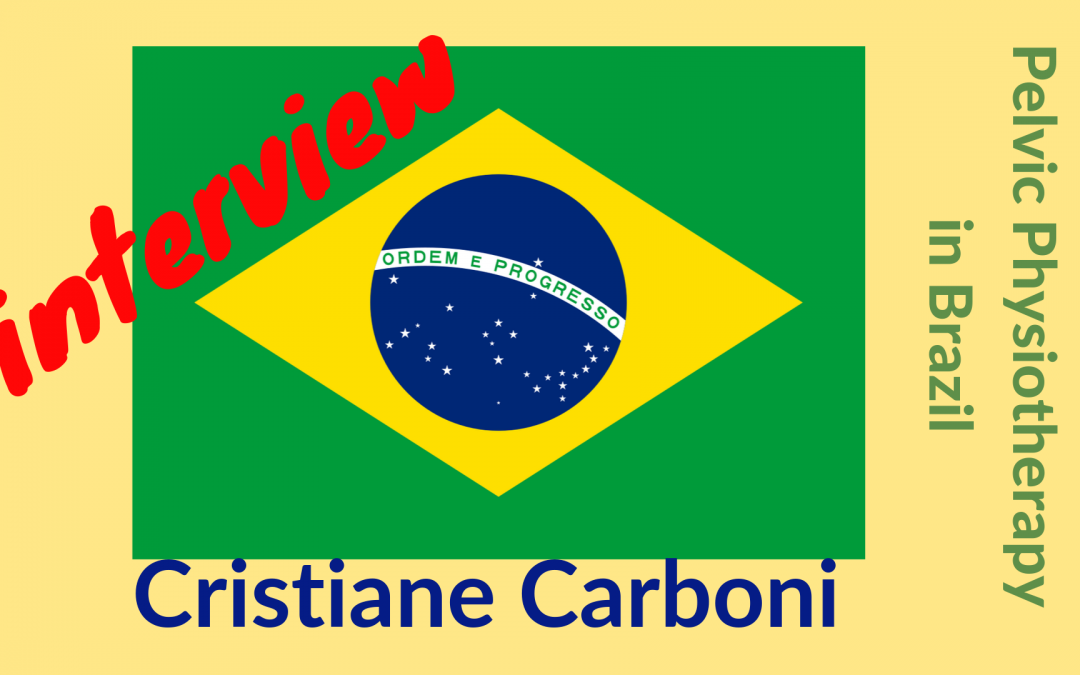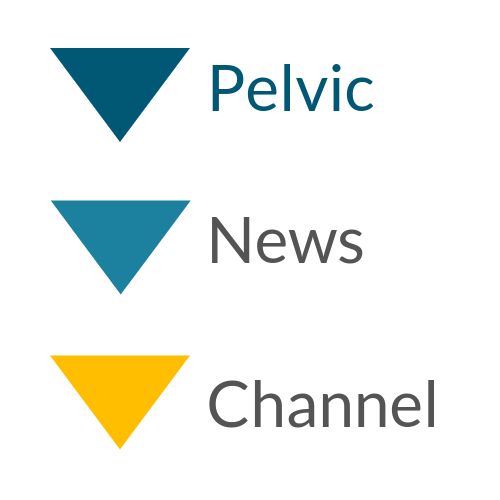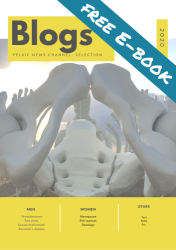This is an interview with Cristiane Carboni. We will talk about why she chose to study pelvic physiotherapy, education in Brazil, her PhD research and the objectives of the school of physiotherapy of the International Continence Society (ICS) and her favourite study book.
Would you like to introduce yourself?
I am Cristiane Carboni from Porto Alegre, Brazil which is in the south of Brazil. I am a pelvic floor physiotherapist and I did my master’s degree in Barcelona (Spain) in 2009. At that time there was no great pelvic floor post-graduation course in Brazil. We were just starting there at that time so most of us had to go out of Brazil to learn more. But now we do have master’s degree and post-graduation pelvic floor rehabilitation. It is still a new area and we are learning, research, projects and clinical practice. So yes we can consider this as a very new area in Brazil.
How did you get interested in the pelvic floor?
During my I graduation of physiotherapy we had only a little bit of information about the pelvic floor. I got interested in what I saw and went up to the very north of Brazil to do a course with a more experienced pelvic floor physiotherapist. After this course I thought that this is what I want to do in life. So I looked where I could do my master’s degree and I found this one in Barcelona. So that was really my first experience in the pelvic floor area.
How long did you study in Barcelona?
It took 2 years. What I learned was a lot of manual therapy. When I got back to Brazil I had to do some courses because we use a lot of electrostimulation and biofeedback and specialize more in electrostimulation and biofeedback for clinical practice in Brazil.
Do you think that the results of the therapy are different with biofeedback and electrostimulation?
My background is without all these devices so I say this to my students that they don’t need it. But in clinical practice we use it with some special patients. Like with biofeedback we have software that is visually nice with flowers and fish for example. Patients like to play with those devices. I did a second master’s degree in Brazil to validate the first one I did in Spain. I was very interested in electrostimulation for erectile dysfunction.
Can you please tell us more about the subject of your PhD?
I wanted to focus my research for my PhD on women’s health because in my clinic we see a lot of women with painful bladder. We have got a crisis in the world with the use of antibiotics. We have just had a lecture here at ICS about the microbiome and how it is important for the women’s bladder. This is very new knowledge and how it affects urinary incontinence and painful bladder. We know that from 2005 and 2015 there was an increase of 65% in the use of antibiotics. This is changing the human microbiome. The majority of the patients that come to the clinic have a urinary exam that is negative but even if it is negative some of them get antibiotics to treat their symptoms. This is very tricky because it looks like a urinary infection but sometimes they are not even tested to see if there is an infection. To try to help at least a part of those women that were taking antibiotics for no good reason was the main reason of the thesis of my PhD.
How far are you in your PhD?
I am kind of in the middle of my PhD. The aim of the work is to validate a tool that the gynaecologist and the urologist can use to see if the symptoms of burn and pain come from skeletal muscles. It is difficult for them because they are not used to do that. This is our specific area of knowledge. We need to provide the gynaecologists/urologists with a tool to recognise and evaluate the symptoms so that they can send those patients to us for treatment.
Do you have any idea when we can expect your results?
We believe it will be ready in one year due to the large number of patients that we have to evaluate. It takes a lot of steps to validate a tool. However, we hope to present the results next ICS meeting in Las Vegas (2020).
You are active in ICS in the institute. Can you tell us more about the institute?
I am the institute director of the school of physiotherapy. We have our physiotherapy committee in ICS that aims to build the papers and organise the forums etc. The aim of the institute is to be an educational platform. We are taking all good videos, lectures and state of the art that we had from the last congress and categorise them. So if you want to learn more about the technology of the pelvic floor you can enter on the institute webpage and you can look for that specific area. All the interesting abstracts etc. can be accessed there. We invite the members too, to share nice videos or papers that they have recorded or written.
Is there something that you really want for the future?
I think we cannot run from technology even in the pelvic floor area, nothing will substitute our hands but I think we have new research coming regarding electrostimulation. There are a lot of new papers coming from another perspective of electrostimulation that will change our clinical practice a bit.
Do you have a specific book you would like to recommend to readers?
There is one I love and that is the ‘overactive pelvic floor’ (link to the book is in the description down below).
Overactive Pelvic Floor, editor Anna Padoa, Talli Y. Rosenbaum, 346 pages, 2016, ISBN: 9783319221496
Dear reader, if you purchase the book (overactive pelvic floor) with one of the links below, you will support Pelvic News Channel. Pelvic News Channel will receive a small commission for every purchase. Ofcourse you won’t notice this in your price. Check your best deal down below:
https://amzn.to/2OzLyQ8 (USA)









Recent Comments